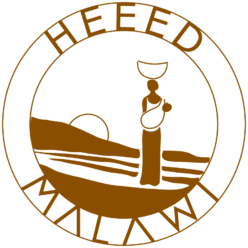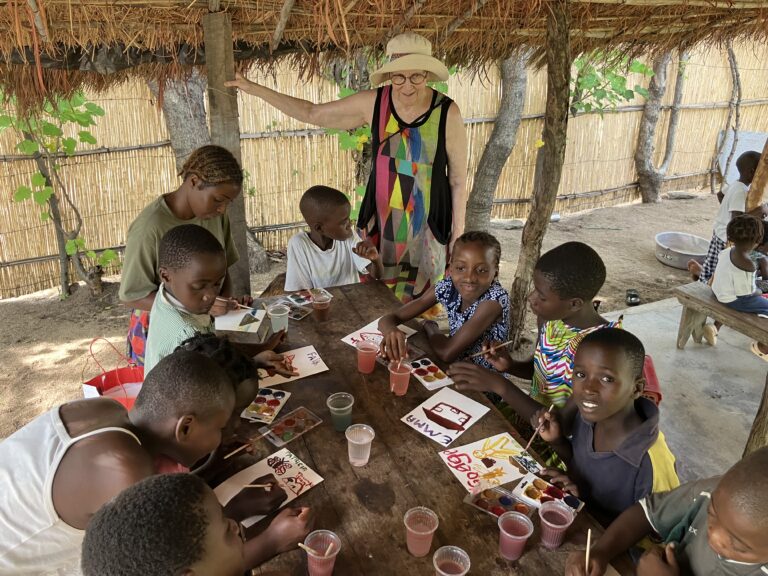
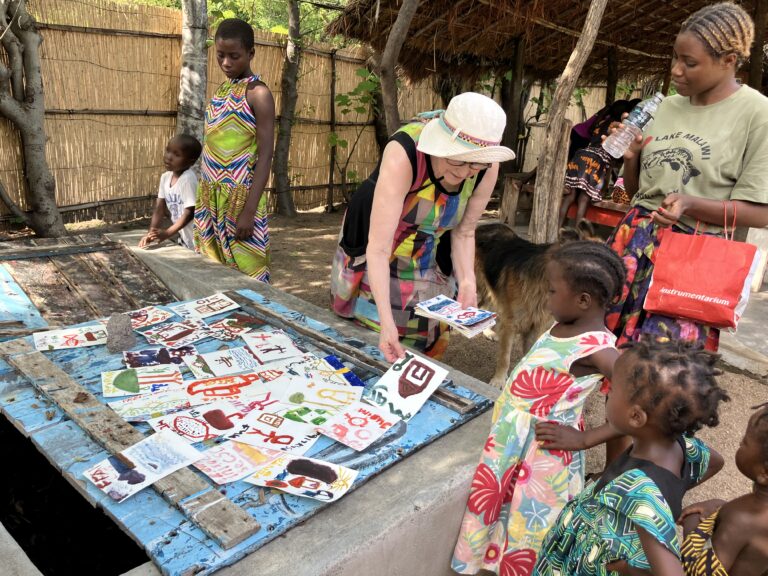
Team




USA Management Consultant and Eco-tourism expert, Shane Strieby, met with Chief Madothi, Chief Village Headman. Chief Madothi is a driving force behind the conservation and economic development of Lake Malawi National Park and Chembe. He is also an advocate for HEEED and the HEEED staff from Chembe-Madothi Village – to submit the HEEED proposal to ADF… This exploratory journey with all 3 consultants included traveling with Captain Mbiro of Mbisi Safaris with all 3 consultants – to study eco-tourism and educational opportunities presented by this unique habitat in Liwonde National Park. At the HEEED Centre at Cape Maclear, water-hyacinth has been harvested from the aquaculture ponds, composted with other organic material to grow successful nutritious vegetables; made into baskets; into fuel briquettes, into bricks and into hand-made paper (see components 4.1-4.2 Appendix 1).






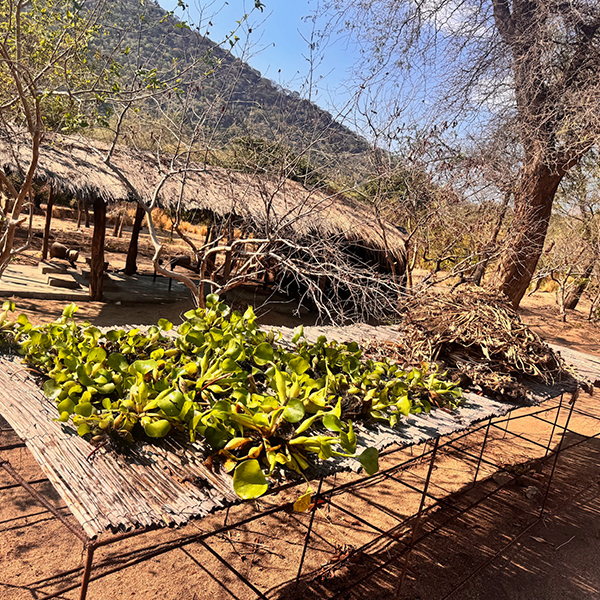
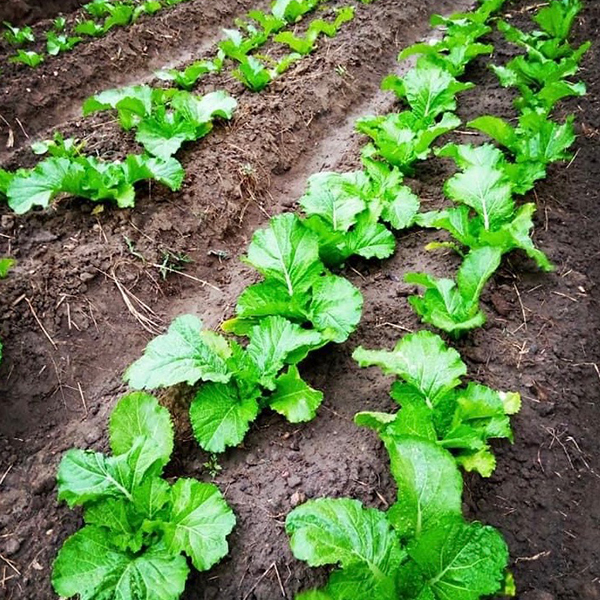

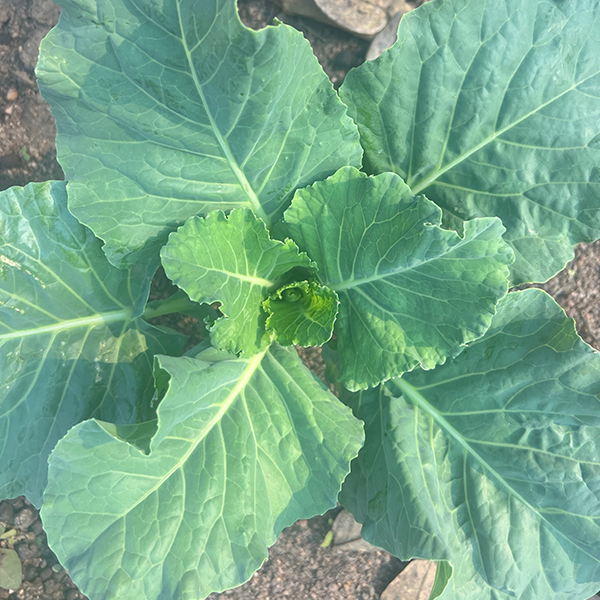
The HEEED team, under the leadership of Violet Zakaria and Shane Strieby, immediately examined various Components 2.1 and 2.2 (see Appendix 1) included in the ADF proposal. This led to a 2- day cruise up and down the upper Shire river and was organized to examine the harvesting and processing of the invasive water-hyacinth weeds – for the benefits of the nation. This included traveling with Captain Mbiro of Mbisi Safaris with all 3 consultants – to study the ecotourism and educational opportunities presented by this unique habitat in Liwonde National Park. At the NYCOM-HEEED CENTRE, water- hyacinth was harvested from the aquaculture ponds, composted with other organic material to grow successful nutritious vegetables, was also transformed into fuel briquettes and to hand made paper (see components 4.1-4.2 Appendix 1).
Waste Management



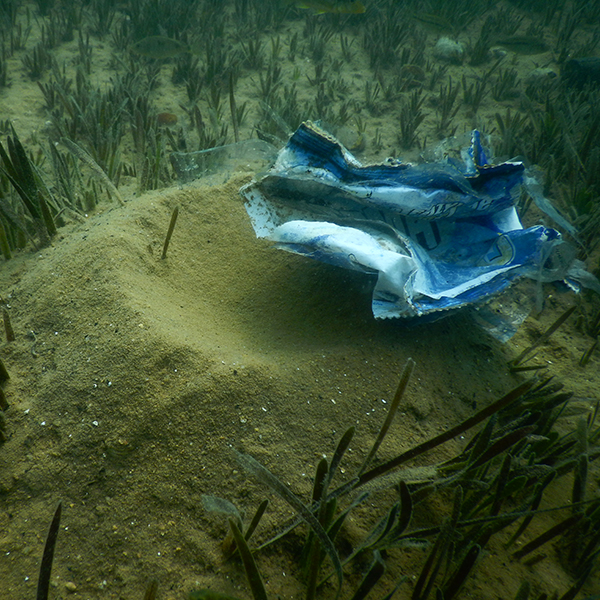
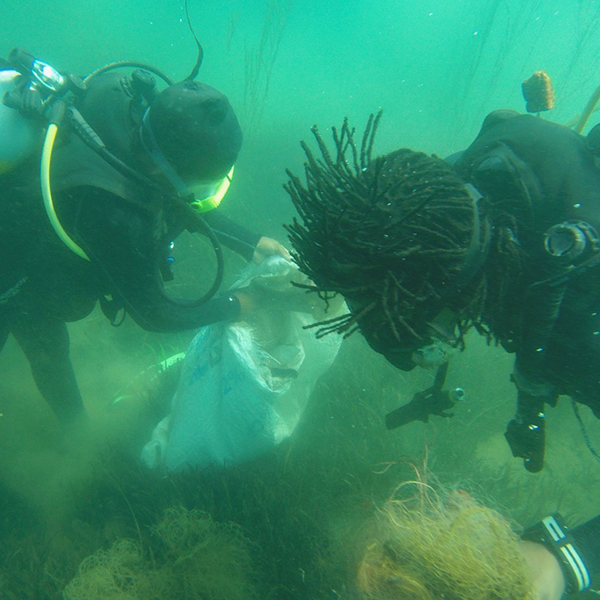
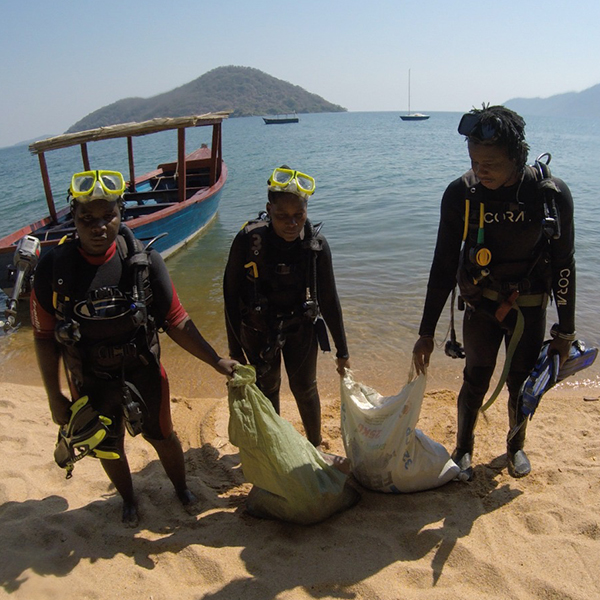
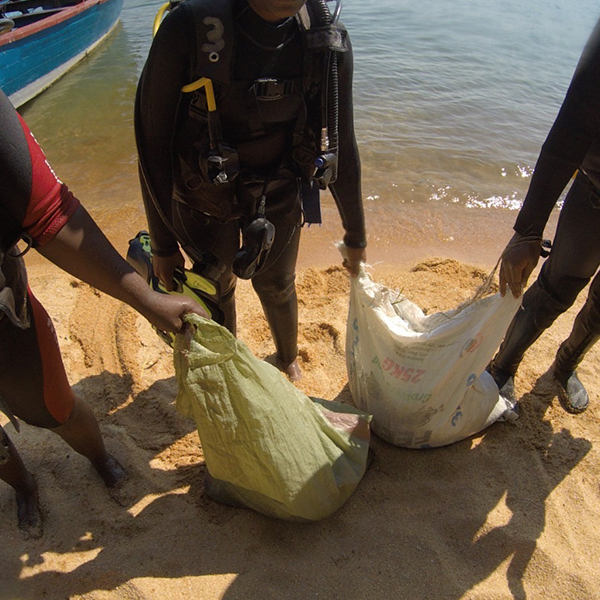
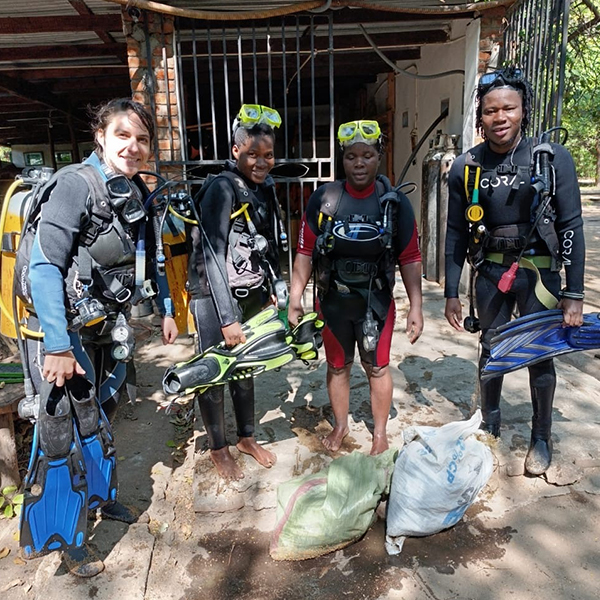
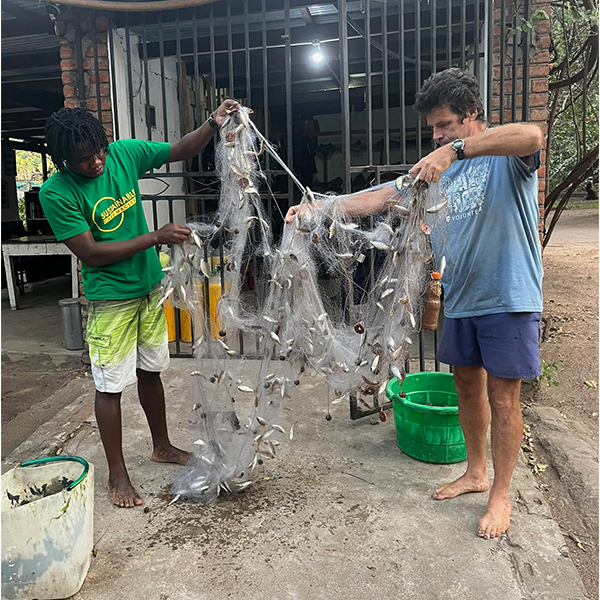
Under the waters of Lake Malawi lies a huge amount of garbage, which negatively impacts on the health of the ecosystem: by covering plants in the nursery grounds of young fish, by covering the male courtship sites – thus reducing and eliminating fish from breeding. Also human and animal health is negatively impacted by the microplastics created by decomposing waste in the water. Furthermore, this unsightly underwater waste ruins the tourist experience in LMNP. The only way to eliminate this waste is by Scuba divers physically removing it by hand. HEEED divers have been removing underwater waste for many years.
Solution to Underwater Waste Management
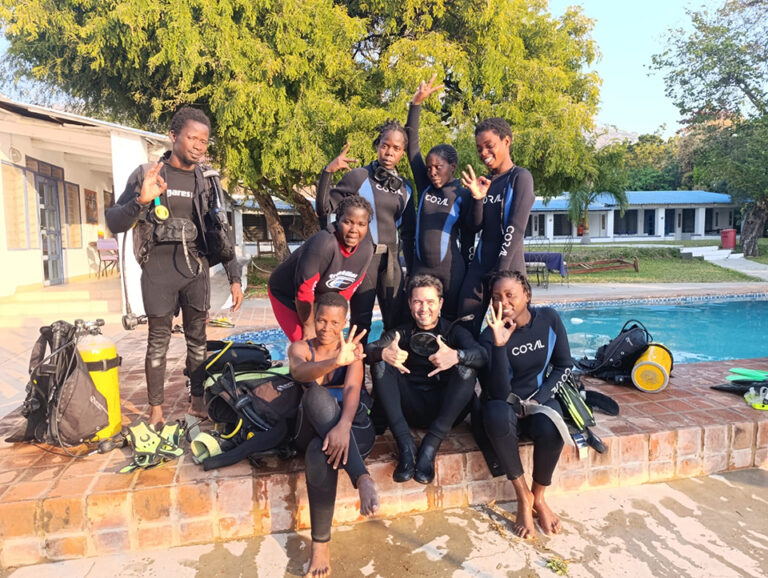
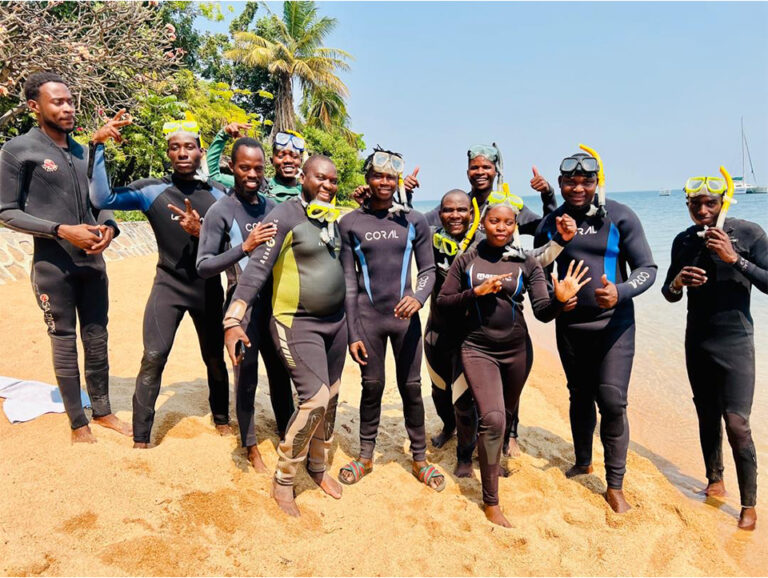
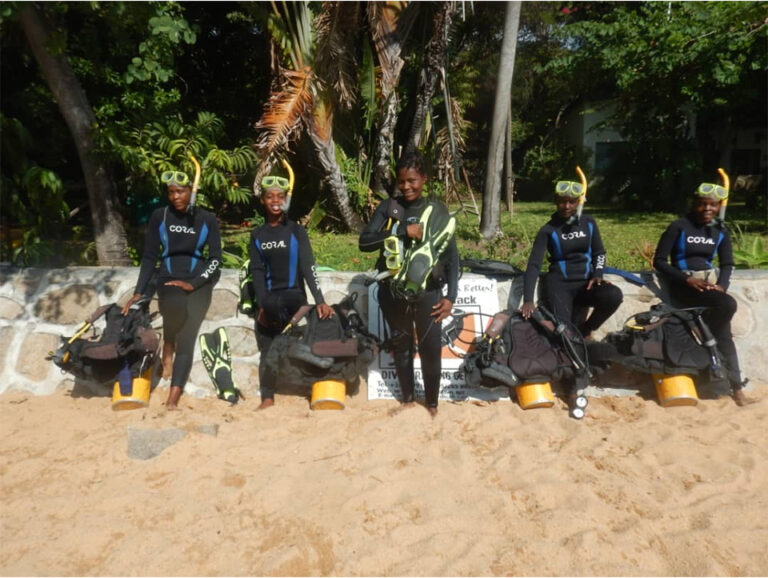
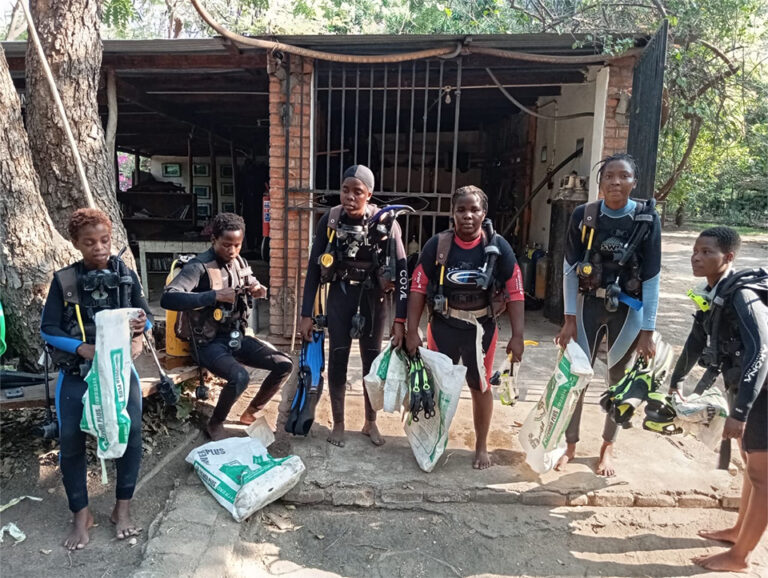
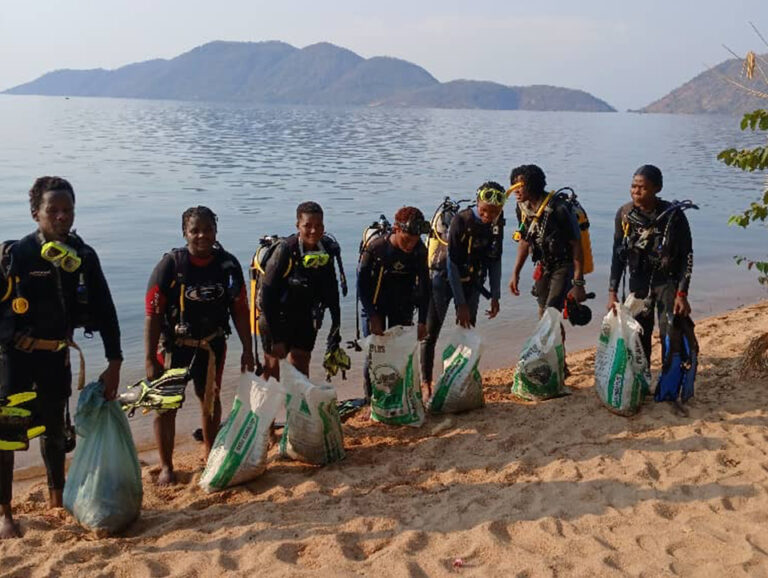
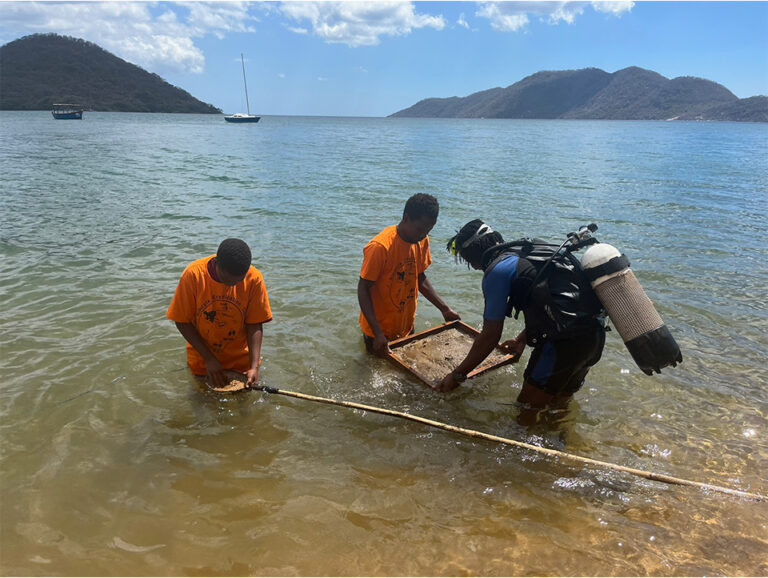
One solution is the training of more scuba-divers to remove this unsightly and unhealthy material from the lake. HEEED Consultants and HEEED staff in August trained 10 scuba divers: 1 HEEED staff member, 7 women from Chembe village, and two National Parks rangers – to become certified PADI divers. All of them now have part- time jobs with HEEED or full- time positions with Malawi National Parks. Hundreds more young people should be trained throughout Malawi to remove as much waste material as possible – both underwater and on land – to prevent an ecological catastrophe.
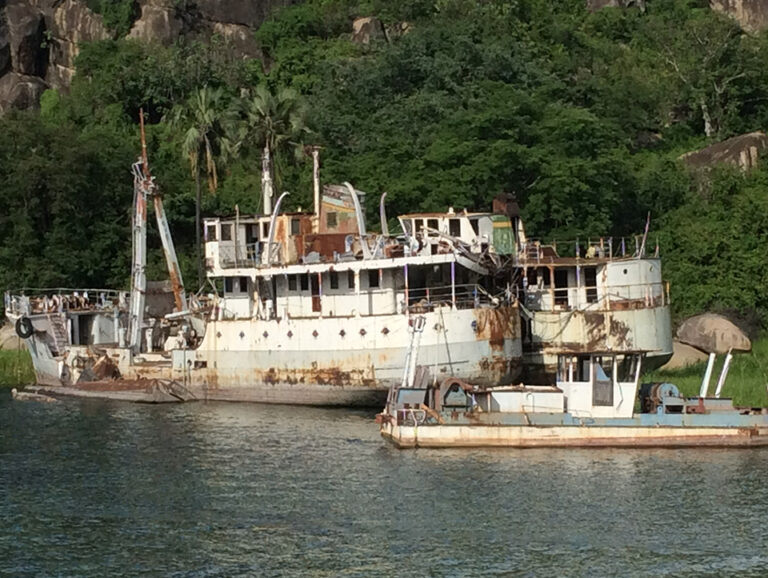
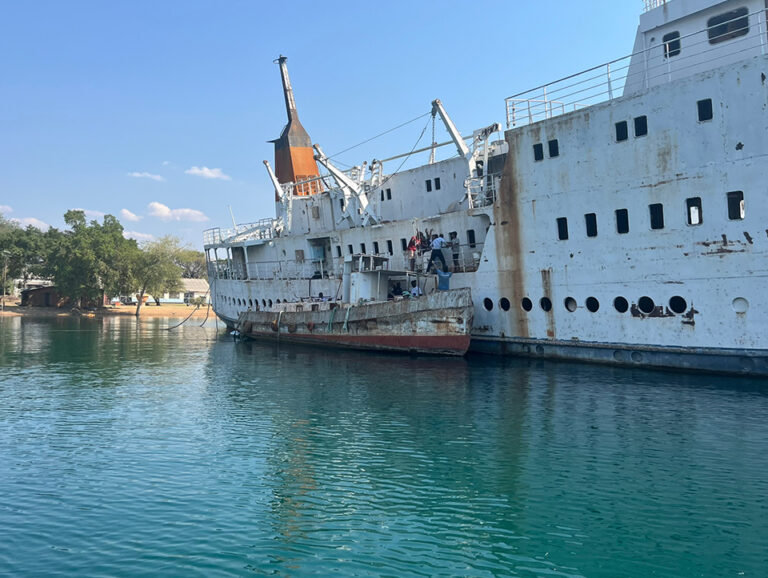
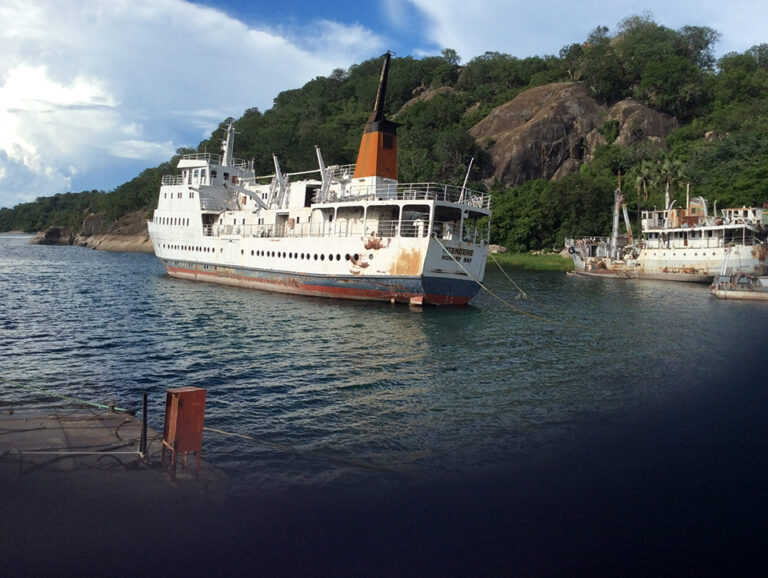
During the exploration of LMNP, the 3 consultants concluded that the greatest pollution threat to the Lake are the decommissioned boats remaining in Monkey Bay that are either sunk or sinking. These boats all need to be cleaned, removed and perhaps used as artificial reefs to attract tourists and enhance fisheries. The greatest threat of all is the listing MV Mtendere. It is filling with water and should it capsize on to its side – it will be impossible to remove economically. HEEED is working with the Government of Malawi to find solutions to this problem that would enhance economic prosperity – rather than an ecological catastrophe.
Creative Recycling
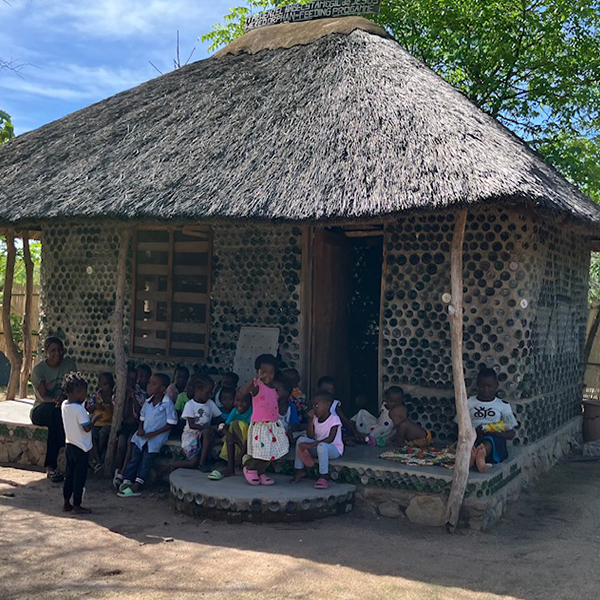

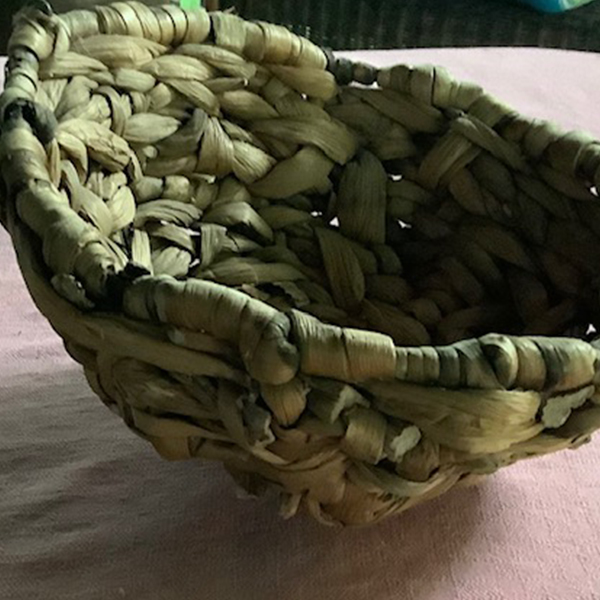


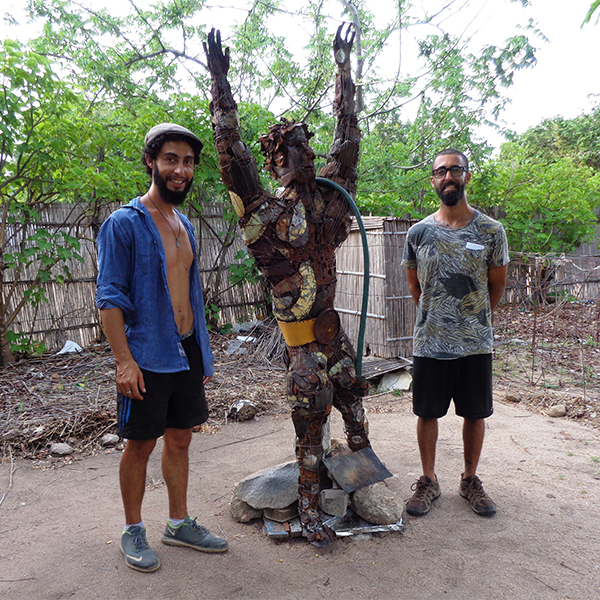
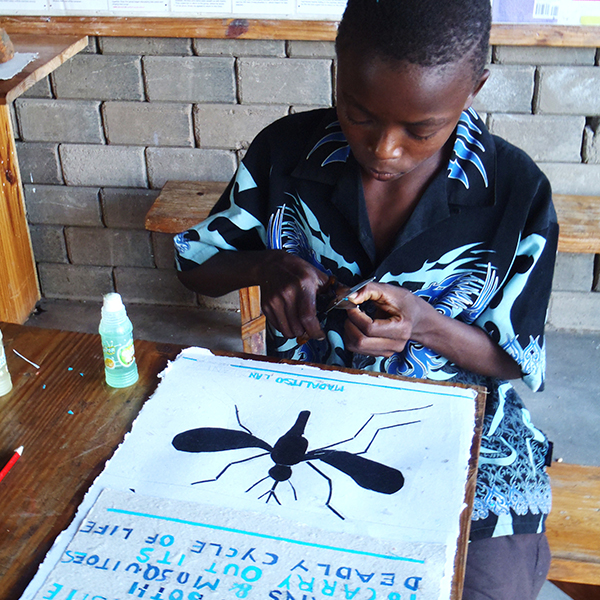
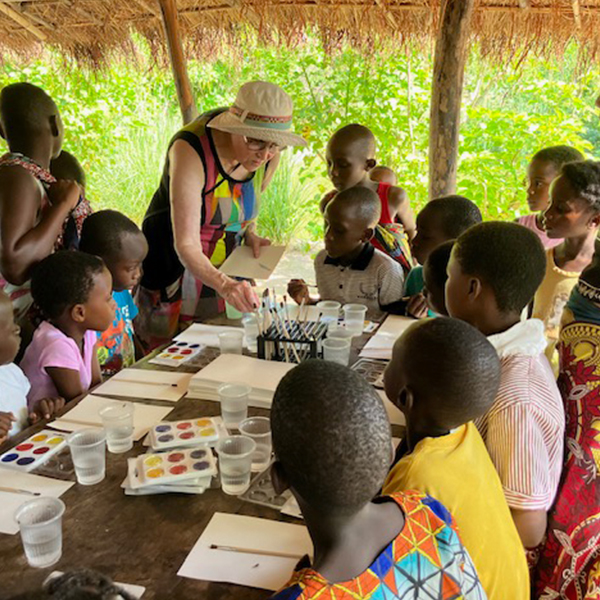
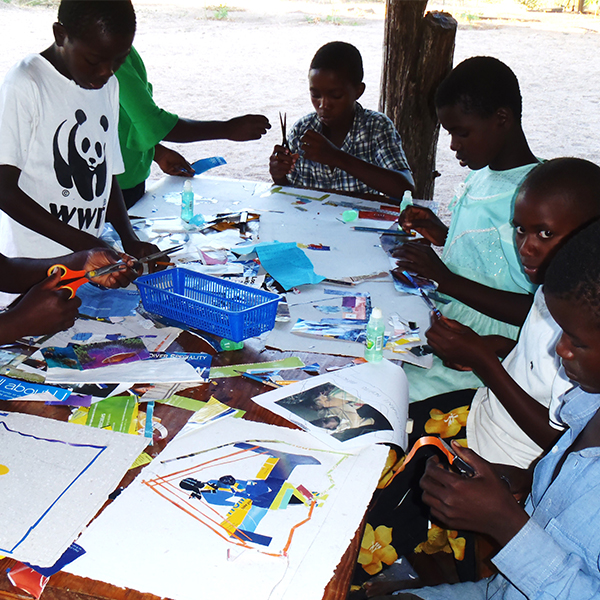
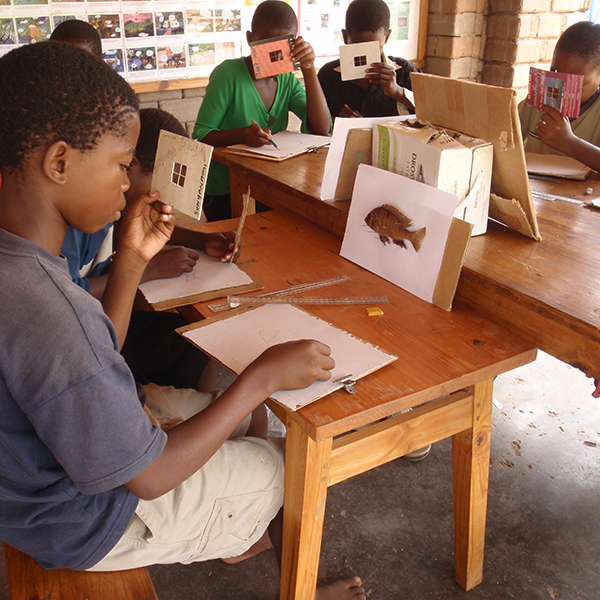
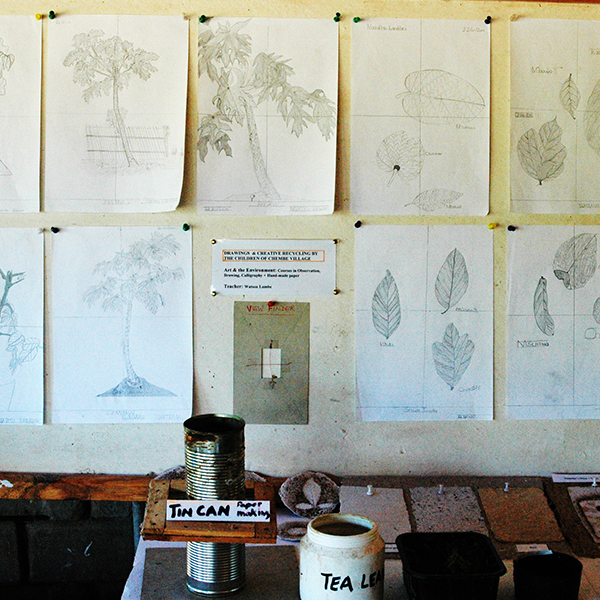
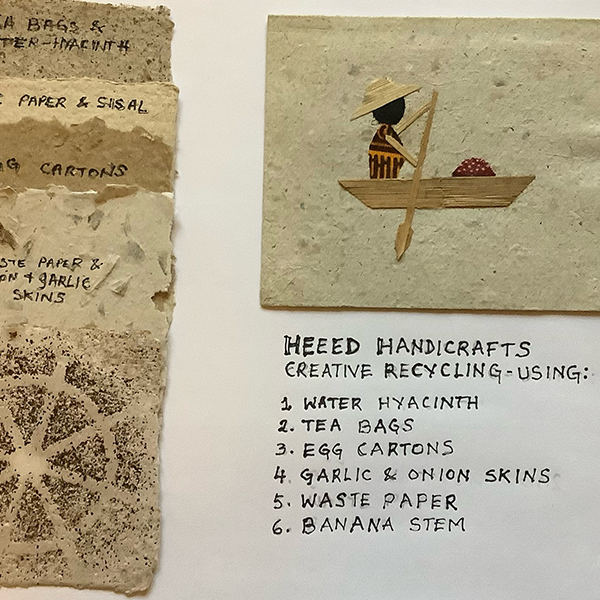
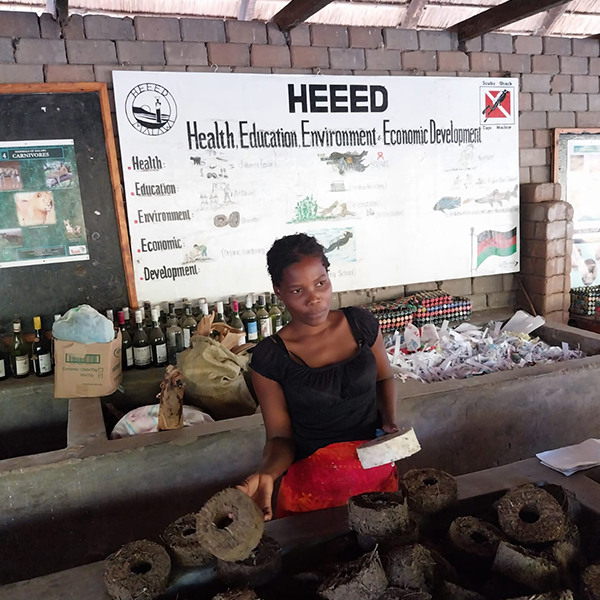
Malawi youth are the future stewards of LMNP and need to be trained to observe their natural surroundings, understand their relationship with their environment – thus enabling them to take care of a garden in their primary schools/homes. Youngsters in Chembe village, in the unique environment of LMNP, have also learnt the art of drawing fish and indigenous leaves. They have also learnt how to recycle waste onions skins, tea bags, waste paper and water-hyacinth into decorative card, books and baskets. In addition, they have learnt how to convert waste bottles into glass tumblers and waste bottle-tops into bags. HEEED also built a bottle-house for pre-school youngsters as a class-room and play area.
To this end, both international volunteers and the HEEED team have developed an Educational Programme at the NYCOM-HEEED Centre. This includes producing 2 mudstoves and supplying briquettes to the local secondary school in Chembe, as well as water-hyacinth baskets made from this invasive plant brought by the British to decorate their ponds many years ago! HEEED is also trying to train Malawi youth to grow vegetables and fruit, instead of relying on growing maize – another colonial legacy left by the Portuguese 250 years ago!
NYCOM





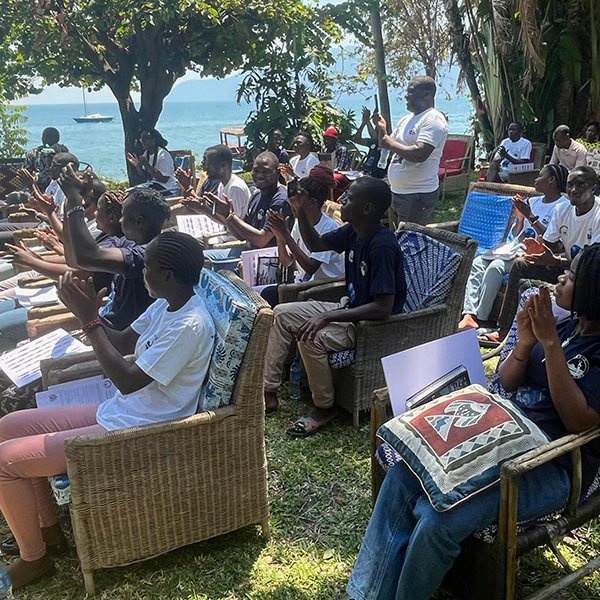
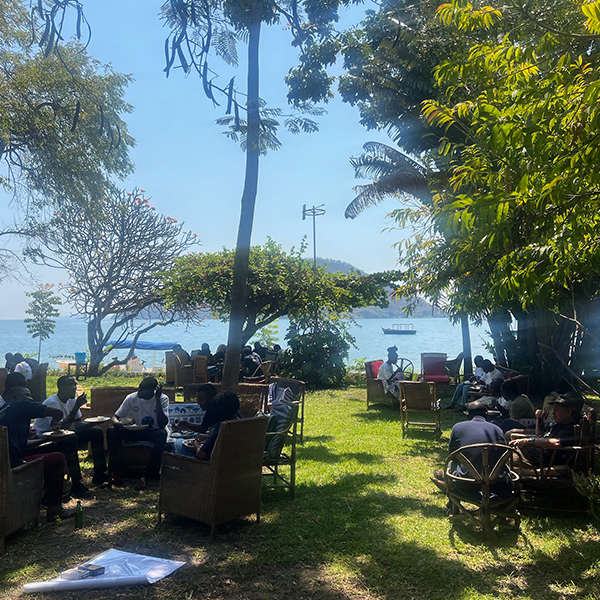
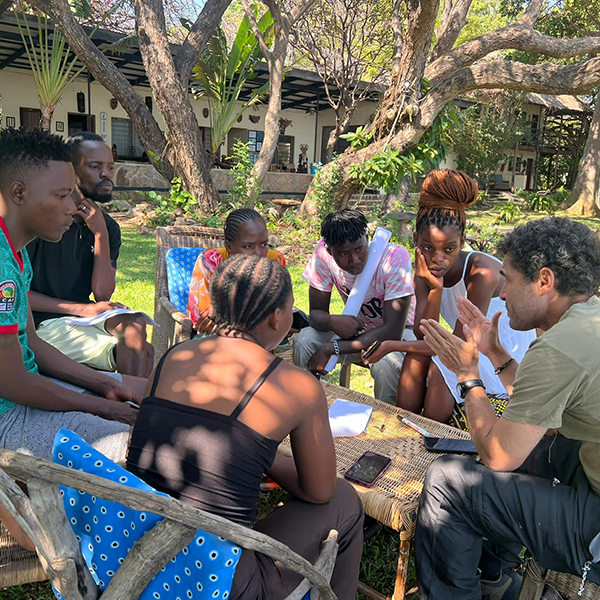
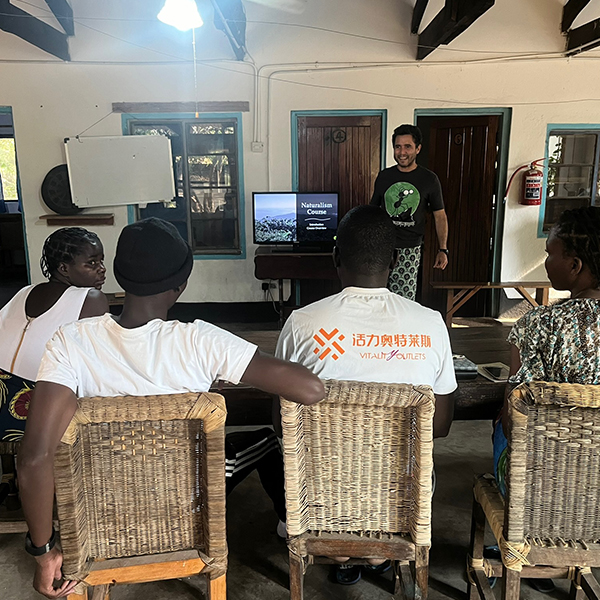
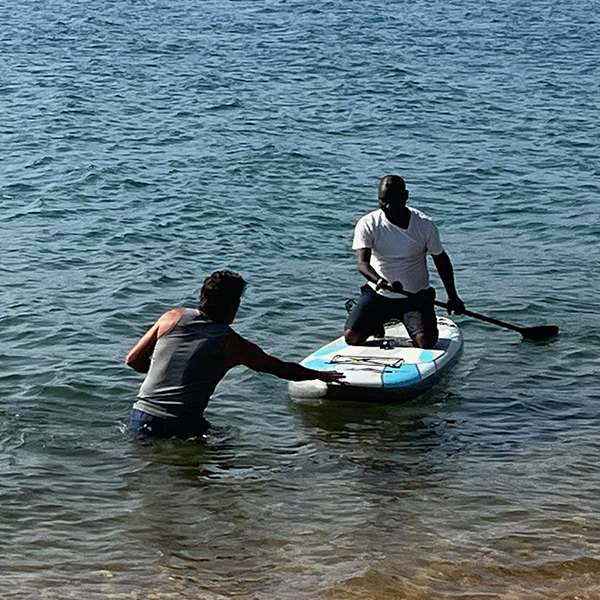
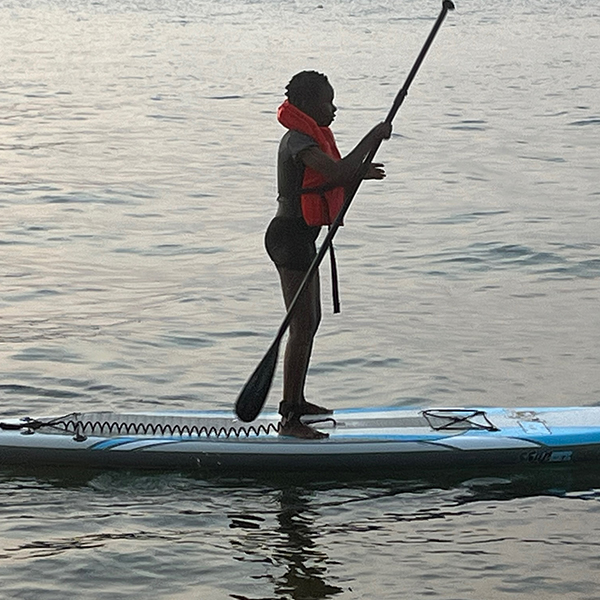
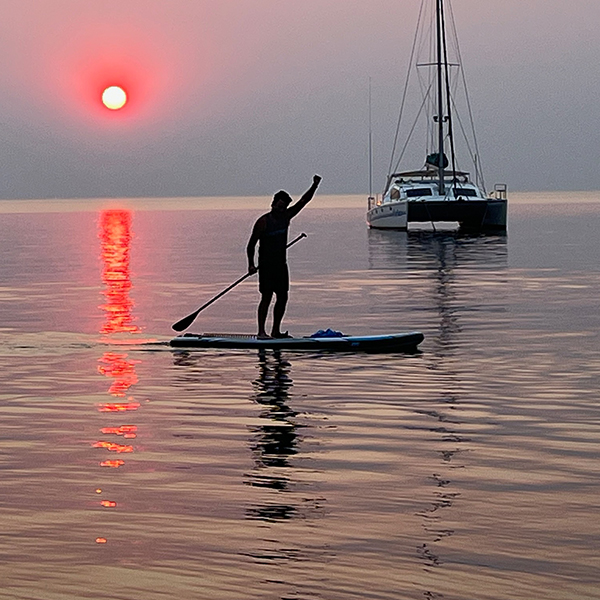
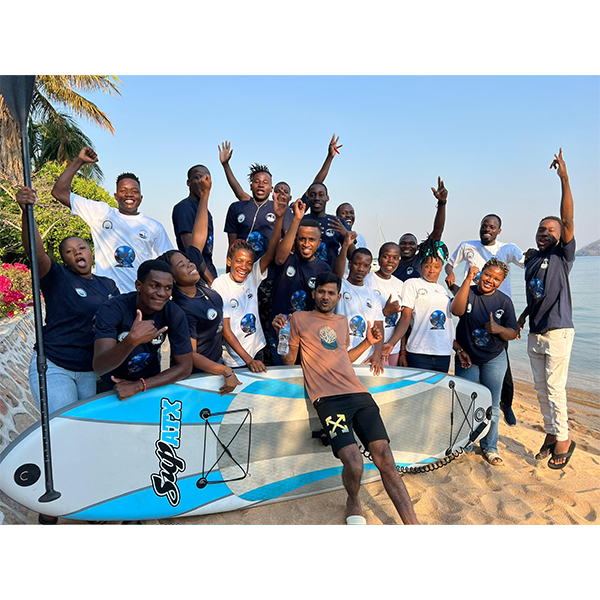
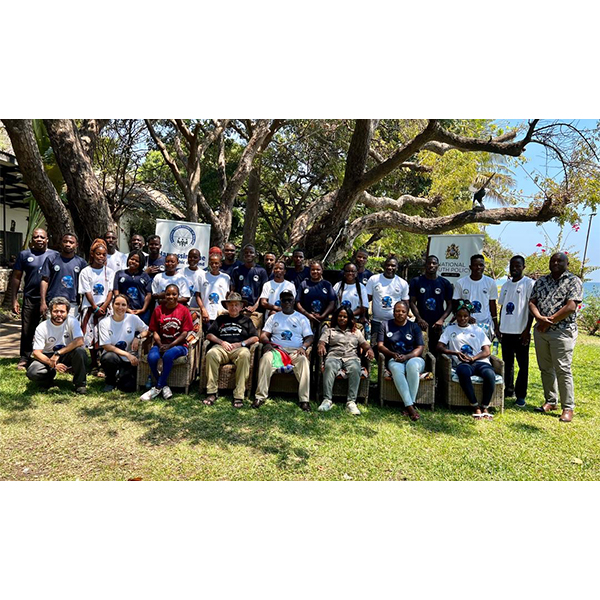
NYCOM is the parastatal National Youth Council of Malawi. In the beginning of September 2024, HEEED consultants and staff ran an environmental and diving course for 22 youth from throughout Malawi. This course was funded by NYCOM as part of the NYCOM-HEEED 3 year ongoing collaboration. During this course students were taught environmental biology, entrepeneurship in developing a tourism programme, diving, and paddle boarding – among other activities. Shane Strieby is seen here training an individual in how to use paddle boards, his youngest successful student, and a sunset, inspirational pose by Shane on a paddle board.
National Park Cape Maclear Manager Emma Saukani
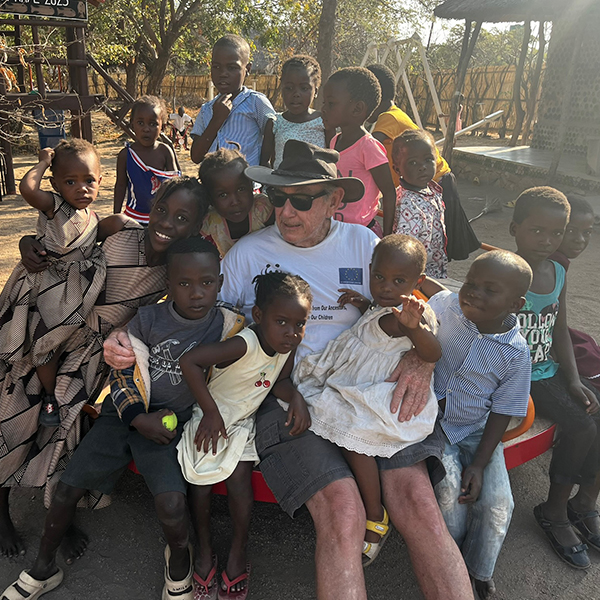




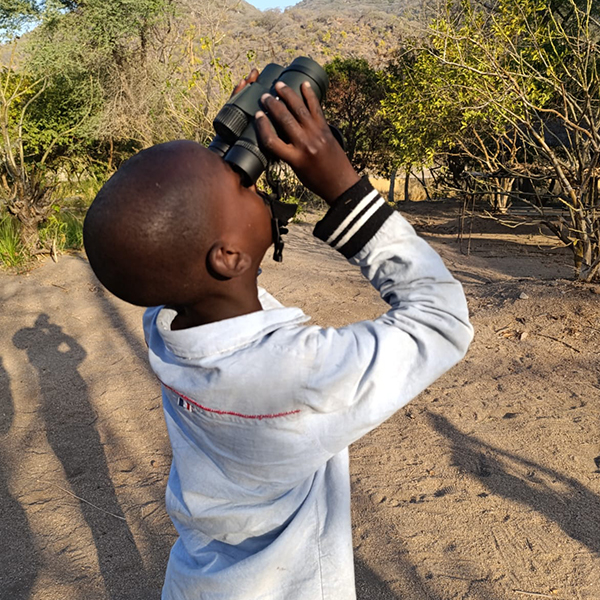
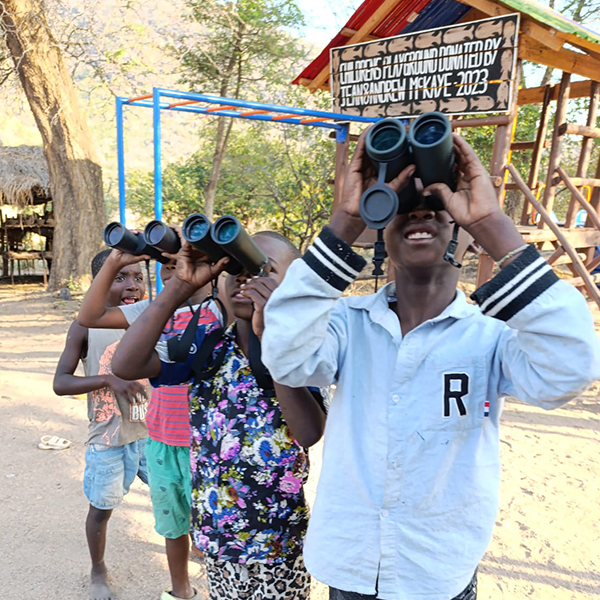
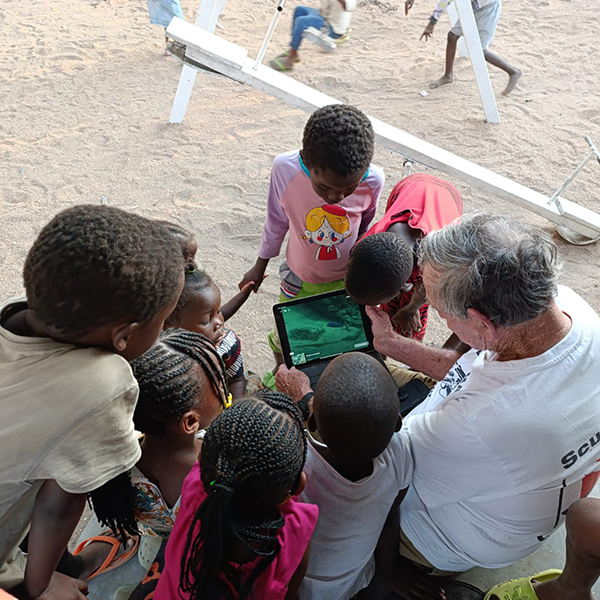
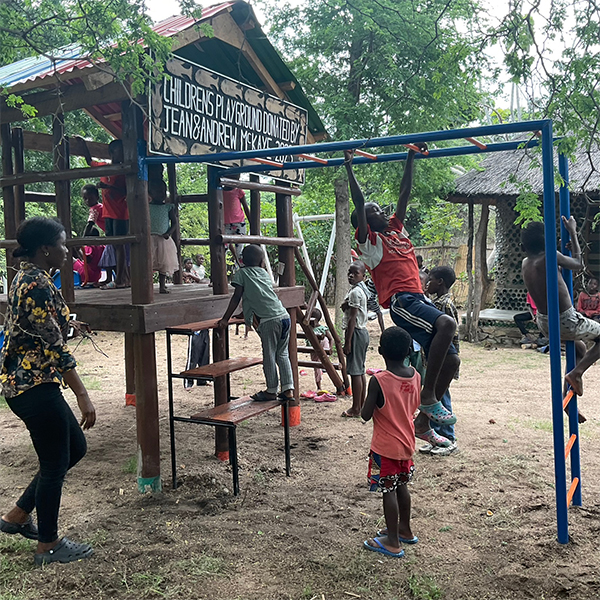
HEEED participates actively in Chembe Village community and the victorious HEEED triathlon (bicycling, swimming and running) team pose with the National Parks Manager who was a leader in the organization of this community event held in LMNP and Chembe Village.
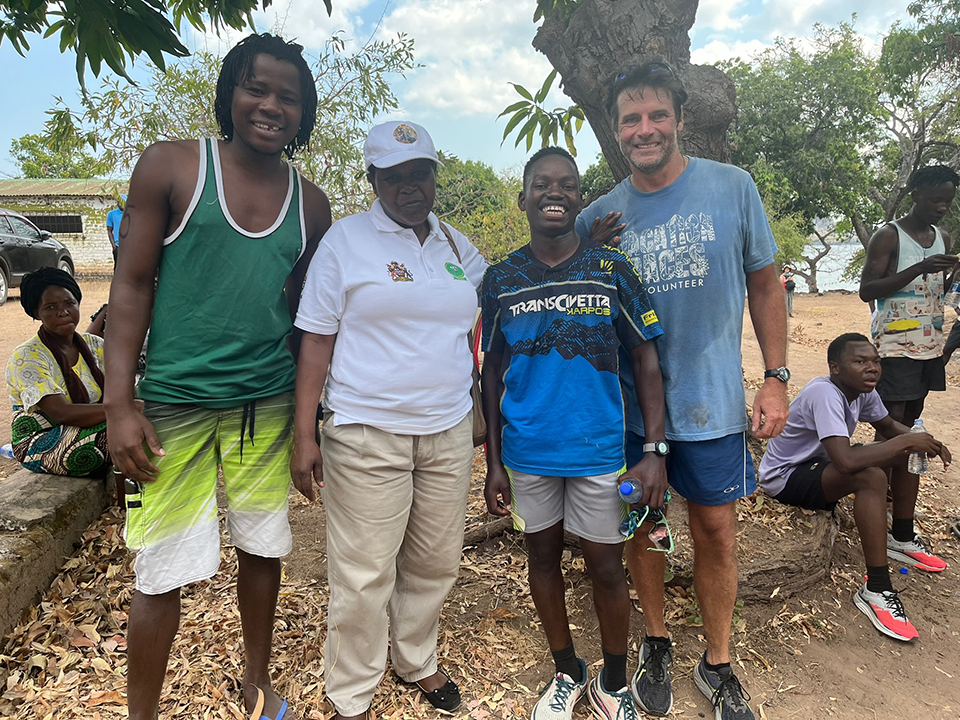
HEEED has an active educational, and nutritional programme for children and also believes that play is important for the development of children. Here the children are watching birds with Edgar and Emily, watching fish behavior on the IPAD of HEEED Trustee Ken McKaye, while also enjoying HEEED’s playground. Shane Strieby is introducing the children to Dolly HEEED Trustee Alison Wiklund’s new Donkey.
Planet Earth 3



In February 2024 the BBC released Planet Earth 3 with an episode in the Freshwater series showing Malawi Play Dead fish, (Nimbochromis livingstonii), engaging in its unique hunting behaviour. This important programme has increased greater recognition of the importance of Lake Malawi’s unique flora and fauna – particularly for visiting tourists to Malawi. HEEED thanks the BBC team for joining us in 2022 and congratulates them for their great work and HEEED hopes that you enjoy this 5-minute video clip of a unique fish behaviour – only found in Malawi!
